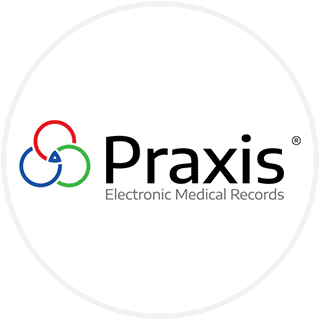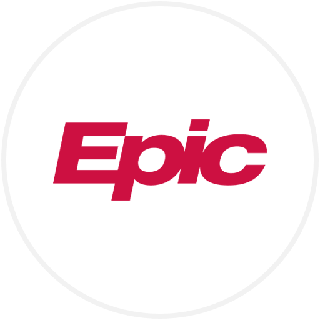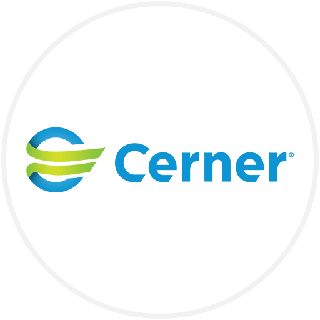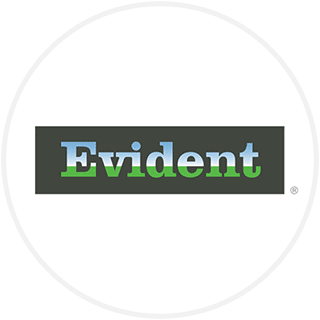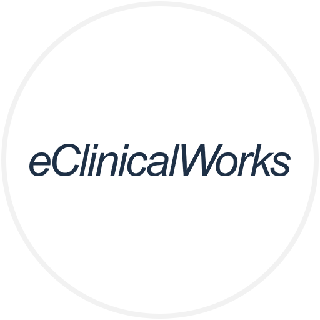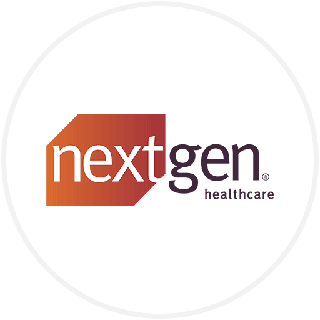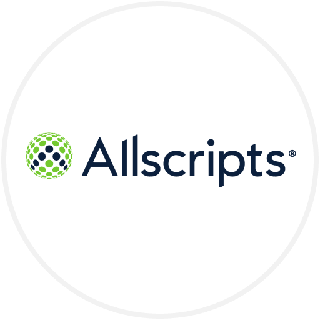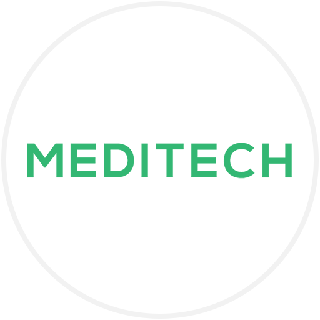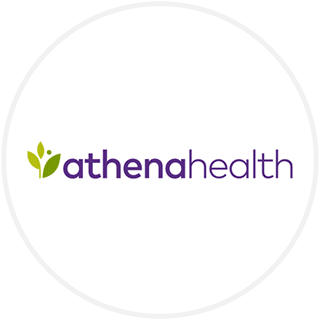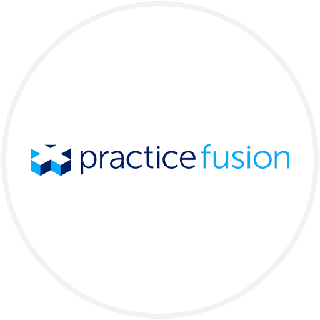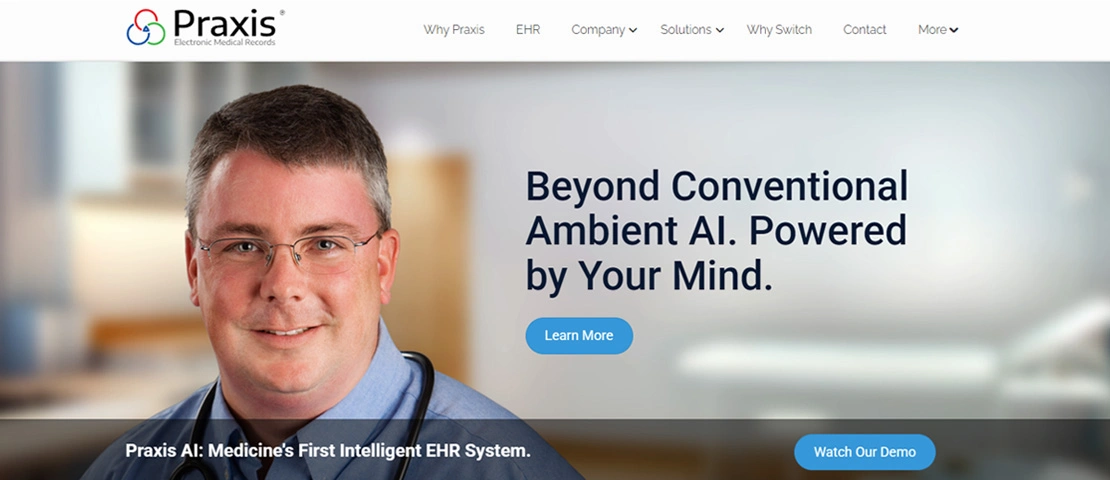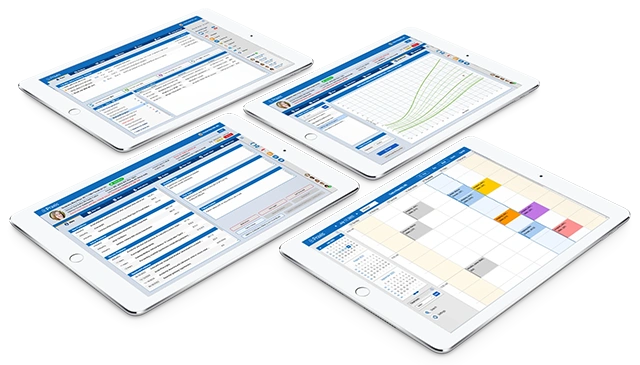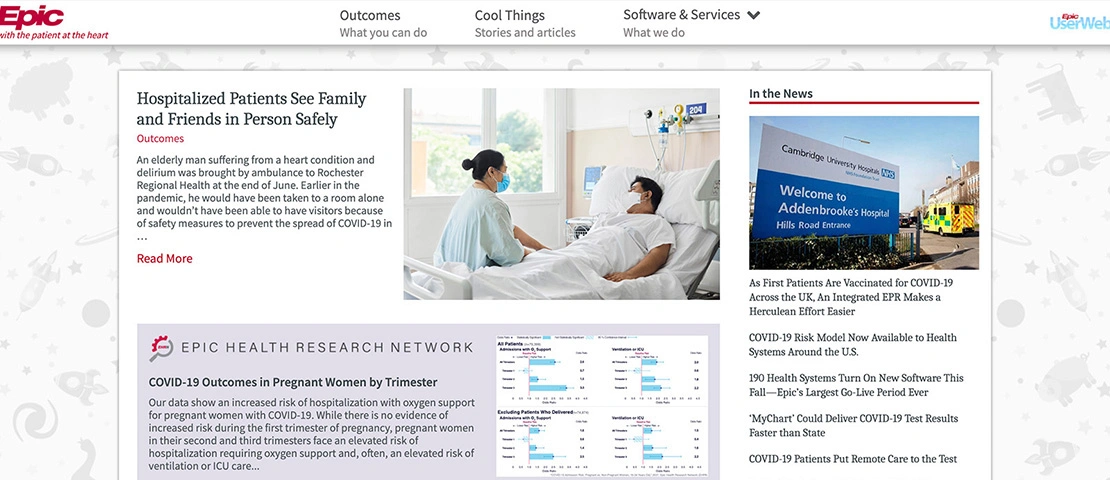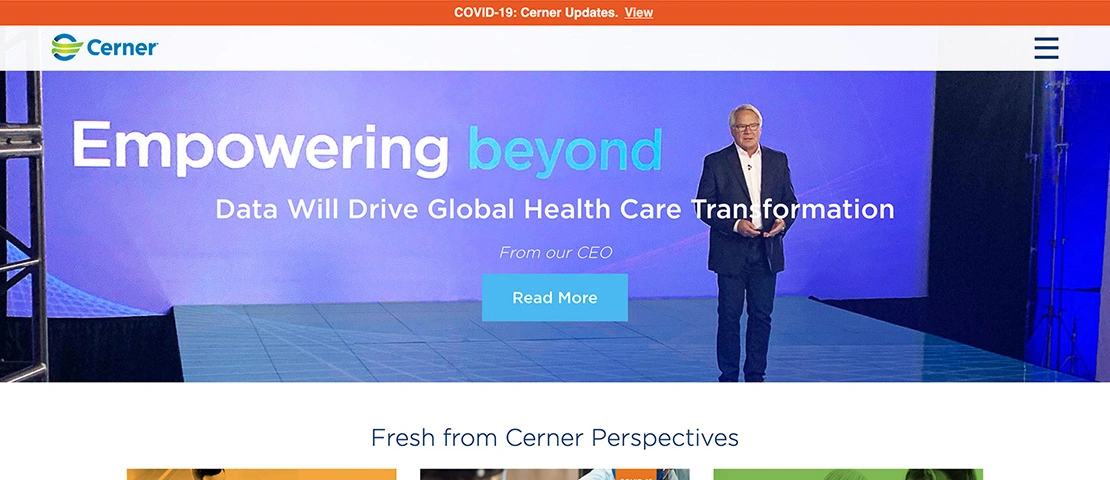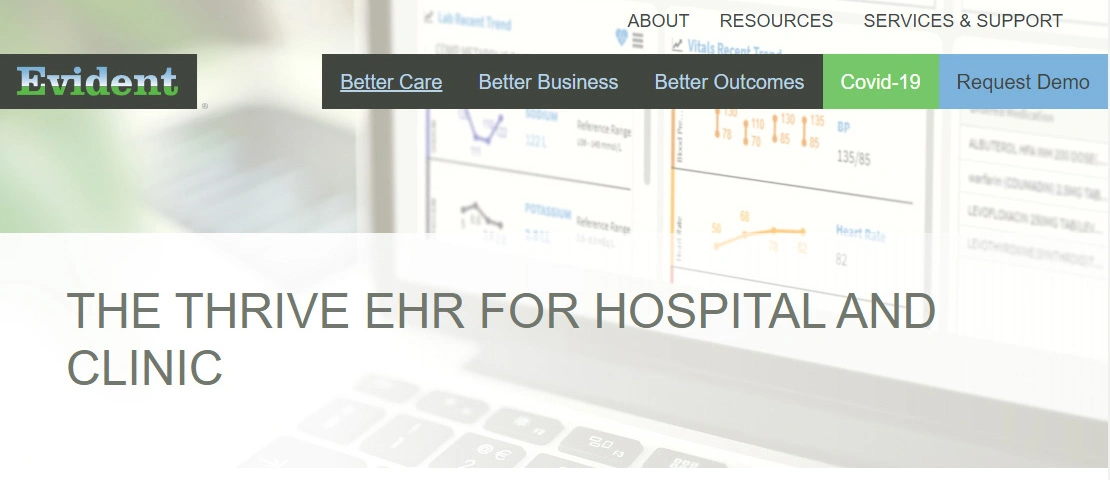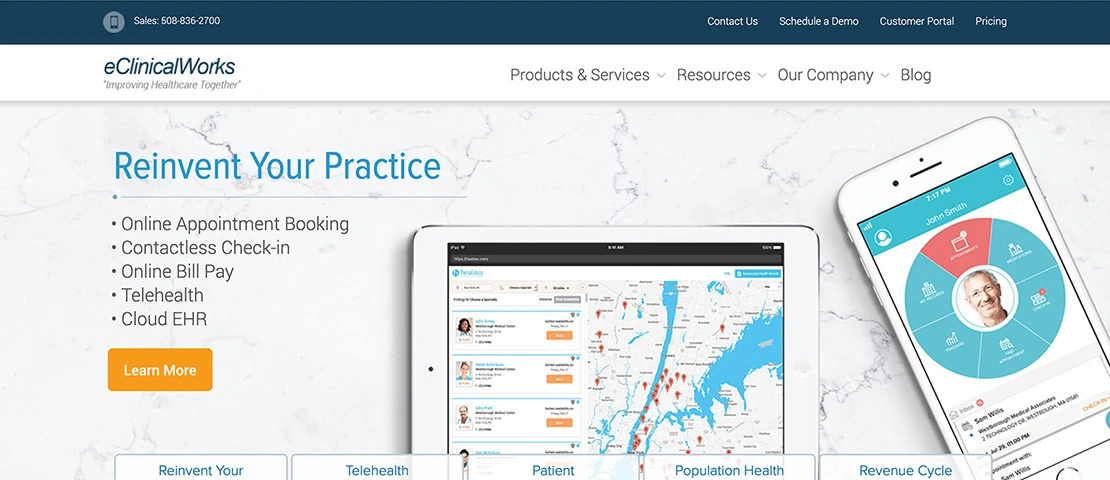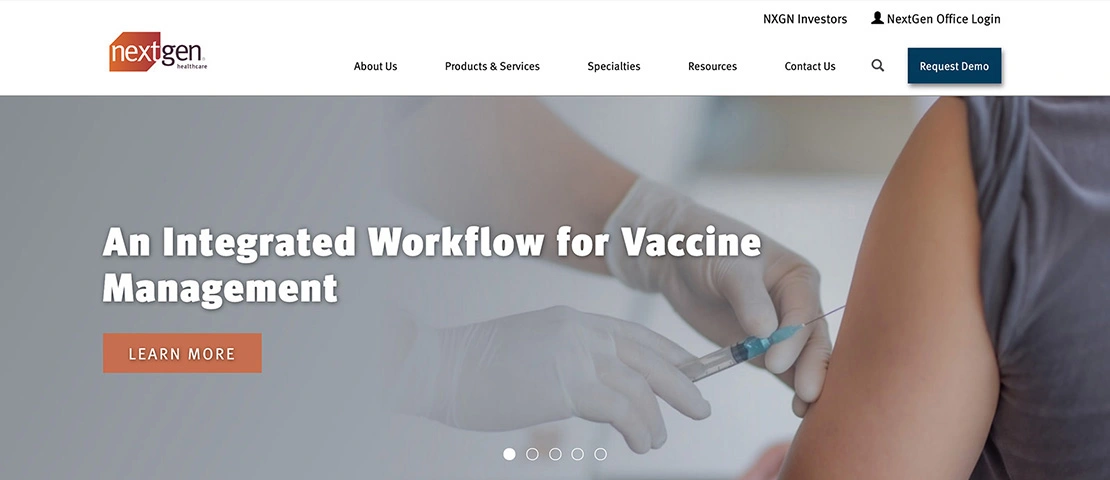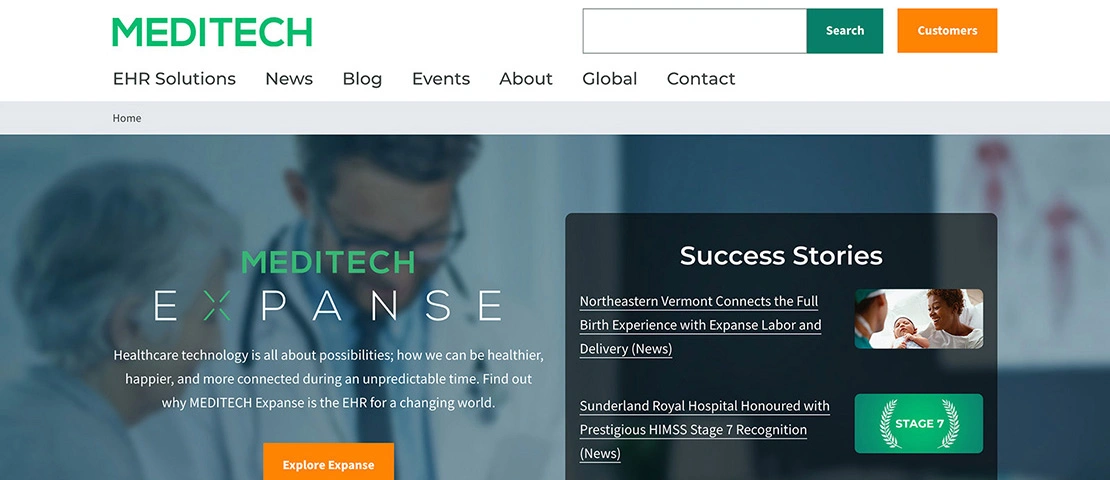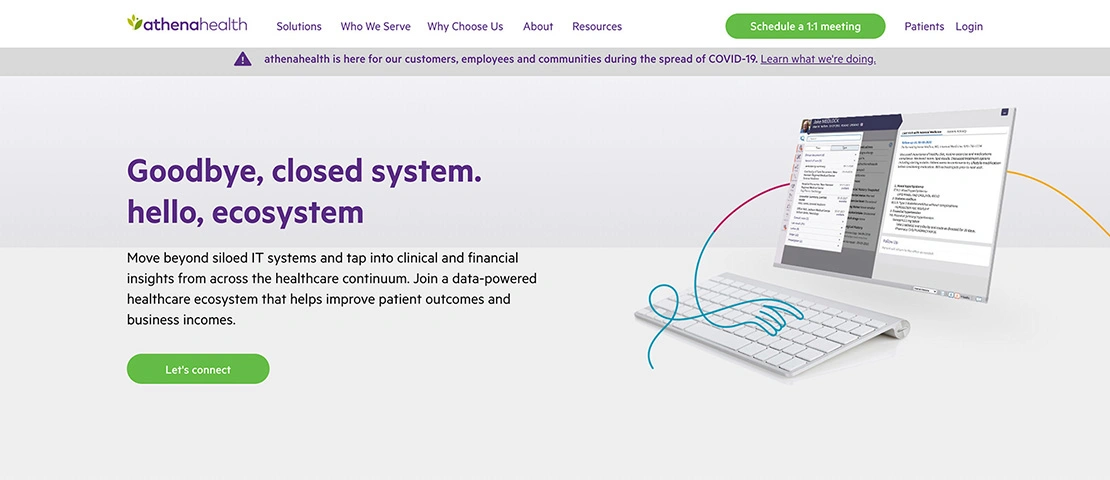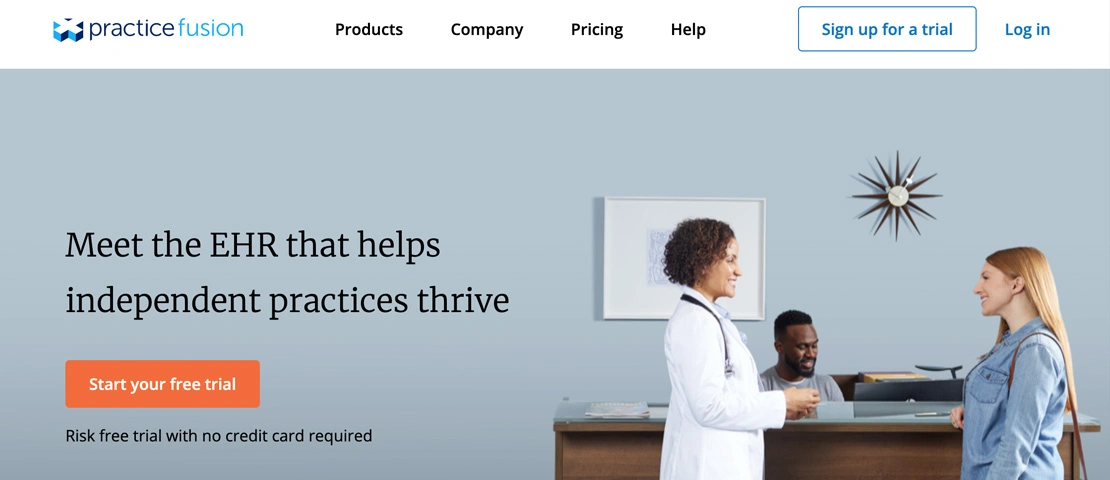Not All EHR Systems Are Created Equal: How to Choose the Best EHR for Your Practice
According to physician users, not all Electronic Health Record (EHR) systems are created equal. In fact, EHR software should not be a one-size-fits-all solution. To truly enhance your medical practice, an EHR system must be designed specifically for physicians—free from rigid, structured charting templates that slow you down.
The wrong Electronic Health Records System can increase charting time, reduce efficiency, and compromise medical quality, ultimately wasting valuable time. However, the right EHR software can be a powerful, time-saving tool that improves patient care, enhances workflow, and makes documentation effortless.
If you’re searching for the best EHR system for your practice, remember: not all EHRs are the same. Some will burden you with excessive clicking, drop-down menus, and rigid templates, while others—like AI-driven, template-free solutions—will adapt to your workflow and help you practice faster and smarter.
To help guide your EHR software selection, here's what thousands of your colleagues think about the best Electronic Medical Records (EMR) and EHR software available today.
Praxis EMR, Epic, Oracle Cerner, CPSI, eClinicalWorks, Athenahealth, Allscripts Veradigm, Nextgen, Meditech, Practice Fusion.
1. Praxis EMR
Founded in 1989 and considered the top AI EHR for small to mid-sized practices, Praxis EMR is renowned for its AI-driven "Concept Processing" technology, which learns from users to facilitate faster and more personalized documentation. Its template-free design allows physicians to chart in free text, enhancing flexibility and efficiency. Praxis EMR is award-winning, serving thousands of physicians and providers and is the number one EHR in by practicing physicians in most major User Satisfaction Surveys nationwide. Praxis is cloud based, and certified as a complete EHR for MACRA and automates CMS Quality Reporting Programs.
Why should you use Praxis EMR?
- AI-Driven Concept Processing: Praxis learns from the user, enabling faster, smarter, and more personalized documentation.
- Template-Free Design: Free of cumbersome templates, allowing providers to chart in fast in free text for greater documentation, quality, efficiency and flexibility.
- Top EHR for Physician User Satisfaction: Rated #1 by most major platforms for usability, making it a preferred choice for physicians.
- Scalable, Adaptable, and Customizable: Ideal for small to mid-sized practices with flexible deployment options (cloud or server-based).
- Faster Learning Curve: The system improves as you use it, reducing charting time and enhancing workflow.
Benefits of Praxis EMR:
- Increased Speed and Productivity: Praxis’ AI-driven technology streamlines documentation, allowing physicians to chart faster while reducing time spent on administrative work.
- Greater Efficiency and Flexibility: The template-free design eliminates rigid structures, allowing providers to chart in their own words, improving workflow and adaptability.
- Higher Medical Quality: With AI-driven learning, Praxis enhances medical accuracy by recalling your best past cases, ensuring consistent, high-quality documentation.
- Legal Protection and Risk Reduction: Praxis EMR helps safeguard physicians with precise, customizable documentation that meets compliance standards, reducing liability risks.
- Lowered Professional Stress: By eliminating redundant clicks, drop-down menus, and excessive typing, Praxis minimizes charting fatigue, allowing providers to focus on patient care rather than paperwork.
Trusted Industry Sources:
- “Praxis EMR’s innovative approach to electronic health records sets it apart in a crowded market.” — Healthcare IT News
- “Physicians appreciate the flexibility and customization that Praxis EMR offers.” — MedTech Journal
- “The AI-driven concept processing in Praxis EMR enhances clinical documentation efficiency.” — Health Informatics Review
Analyst Summary:
Praxis EMR stands out due to its AI-driven, template-free approach, offering a highly customizable and efficient documentation experience. Its focus on user satisfaction and adaptability makes it a strong choice for practices seeking a personalized EHR solution.
By incorporating these detailed insights, the Praxis EMR section provides a comprehensive overview that highlights its unique features and benefits, potentially improving its ranking and appeal to readers.
How Praxis EMR Works
Praxis EMR is dramatically different. It thinks like you do. The Artificial Intelligence (AI) inside Praxis gets faster and easier as you use it. Praxis is not just an EHR system; it's a medical tool.
How Praxis EMR Works2. Epic
Epic Systems is a leading provider of healthcare software, offering comprehensive EHR solutions widely adopted by large healthcare organizations. Known for its interoperability and extensive functionalities, Epic supports various specialties and integrates seamlessly with other systems.
Five Reasons to Use Epic Systems:
- Comprehensive Functionality: Offers a wide range of features supporting various medical specialties.
- Interoperability: Integrates seamlessly with other systems, facilitating smooth data exchange.
- Scalability: Suitable for large healthcare organizations with complex needs.
- Patient Engagement Tools: Provides robust patient portals and communication features.
- Strong Industry Reputation: Widely recognized and trusted in the healthcare industry.
Five Benefits of Epic Systems:
- Enhanced Care Coordination: Facilitates seamless communication among healthcare providers, improving patient outcomes.
- Data-Driven Decision Making: Offers advanced analytics to support clinical and operational decisions.
- Regulatory Compliance: Ensures adherence to healthcare regulations and standards.
- Customizable Workflows: Allows tailoring of workflows to meet specific organizational needs.
- Robust Security Measures: Implements strong security protocols to protect patient data.
Quotes from Trusted Sources:
- “Epic Systems continues to lead the market with its comprehensive EHR solutions.” — Healthcare IT News
- “The interoperability of Epic’s platform enhances coordinated care across healthcare settings.” — HealthTech Magazine
- “Epic’s patient engagement tools empower individuals to take charge of their health.” — Patient Engagement Journal
Analyst Summary:
Epic Systems offers a robust and scalable EHR solution suitable for large healthcare organizations. Its emphasis on interoperability and patient engagement positions it as a leader in the EHR market.
3. Oracle Cerner
Oracle Cerner delivers innovative EHR solutions designed to enhance clinical workflows and patient care. Its platform emphasizes data analytics and population health management, aiding healthcare providers in making informed decisions.
Five Reasons to Use Oracle Cerner:
- Data Analytics Integration: Provides advanced analytics tools for informed decision-making.
- Population Health Management: Supports initiatives to improve community health outcomes.
- Customizable Workflows: Allows tailoring to specific clinical workflows.
- Interoperability: Facilitates seamless data exchange with other systems.
- Global Presence: Trusted by healthcare organizations worldwide.
Five Benefits of Oracle Cerner:
- Improved Clinical Outcomes: Utilizes data analytics to enhance patient care strategies.
- Efficient Resource Management: Optimizes staffing and resource allocation through data insights.
- Enhanced Patient Engagement: Offers tools to involve patients actively in their healthcare journey.
- Regulatory Compliance: Ensures systems meet international healthcare standards.
- Scalable Solutions: Caters to the needs of both small clinics and large hospital systems.
Quotes from Trusted Sources:
- “Oracle Cerner’s focus on data analytics sets it apart in the EHR landscape.” — Health Data Management
- “The platform’s population health tools are invaluable for managing community health.” — Public Health Today
- “Cerner’s customizable workflows enhance clinical efficiency.” — Clinical Informatics News
Analyst Summary:
Oracle Cerner’s integration of data analytics and population health management tools makes it a valuable asset for healthcare providers aiming to enhance clinical outcomes and operational efficiency.

4. CPSI
CPSI specializes in EHR systems tailored for community hospitals and healthcare systems. Their solutions focus on affordability and ease of use, ensuring that smaller facilities can effectively manage patient records and improve care delivery.
Five Reasons to Use CPSI:
- Affordability: Offers cost-effective solutions suitable for smaller healthcare facilities.
- User-Friendly Interface: Designed for ease of use, reducing the learning curve for staff.
- Tailored for Community Hospitals: Addresses the unique needs of smaller healthcare settings.
- Comprehensive Support: Provides robust customer support and training resources.
- Integrated Financial Management: Combines clinical and financial data for streamlined operations.
Five Benefits of CPSI:
- Improved Operational Efficiency: Streamlines administrative tasks, allowing staff to focus on patient care.
- Enhanced Patient Safety: Implements safety checks to reduce medical errors.
- Regulatory Compliance: Ensures adherence to healthcare regulations specific to community hospitals.
- Scalable Solutions: Allows for growth and adaptation as facility needs change.
- Cost Savings: Reduces operational costs through efficient system design.
Quotes from Trusted Sources:
- “CPSI’s EHR solutions are a boon for community hospitals seeking affordable technology.” — Rural Health Journal
- “The user-friendly design of CPSI’s system facilitates quick adoption by healthcare staff.” — Healthcare Technology Review
- “CPSI understands the unique challenges of smaller hospitals and addresses them effectively.” — Community Healthcare News
Analyst Summary:
CPSI provides affordable and user-friendly EHR solutions tailored to the needs of community hospitals, making it a practical choice for smaller healthcare facilities aiming to improve care delivery.
"Consistent billing and collections are now being done, and we can see that with our increase in cash and our lower AR days."
—Greg Gibbes, CEO
"Notes made documentation four to five times faster. Its narrative format made it read a lot better and easier for the next provider to interpret."
—Jeremy Reynolds, PA-C, MPAS at Falls Community Hospital and Clinic
5. eClinicalWorks
eClinicalWorks offers cloud-based EHR and practice management solutions, serving a diverse range of medical practices. Its platform includes telehealth capabilities, patient engagement tools, and robust analytics, supporting comprehensive care delivery.
Five Reasons to Use eClinicalWorks:
- Comprehensive Telehealth Solutions: Integrates telehealth capabilities for remote patient consultations.
- Patient Engagement Tools: Offers portals and communication features to enhance patient involvement.
- Robust Analytics: Provides data analytics for informed clinical decision-making.
- Cloud-Based Platform: Ensures accessibility and scalability for various practice sizes.
- Integrated Practice Management: Combines EHR with practice management for streamlined operations.
Five Benefits of Using eClinicalWorks:
- Powerful Documentation: Automates charting to reduce provider workload.
- Strong Telehealth Capabilities: Supports virtual care delivery.
- Mobile-Friendly Interface: Allows providers to access patient data on the go.
- Integrated Billing System: Improves financial efficiency.
- Comprehensive Specialty Support: Covers multiple medical disciplines.
Quotes from Trusted Sources:
- “eClinicalWorks’ telehealth integration is timely and effective.” — Telemedicine Today
- “The platform’s patient engagement tools have improved our communication strategies.” — Patient Care Magazine
- “eClinicalWorks’ analytics capabilities are top-notch, aiding in better clinical decisions.” — Health Data Review
Analyst Summary:
eClinicalWorks’ comprehensive features, including telehealth and robust analytics, make it a versatile solution for medical practices seeking to enhance patient care and operational efficiency.
6. NextGen Healthcare
NextGen Healthcare delivers EHR solutions tailored for ambulatory practices, focusing on specialty-specific workflows.
Five Reasons to Use NextGen Healthcare:
- Specialty-Specific Templates: Offers customizable templates catering to various medical specialties.
- Integrated Practice Management: Combines EHR with scheduling and billing functionalities.
- Patient Portal: Enhances patient engagement through secure messaging and access to health records.
- Mobile Accessibility: Provides mobile apps for healthcare providers on the go.
- Regulatory Compliance: Ensures adherence to industry standards and regulations.
Five Benefits of Using NextGen Healthcare:
- Customizable for Various Specialties: Improves usability for niche practices.
- Intelligent Clinical Decision Support: Aids providers in making evidence-based decisions.
- Efficient Revenue Cycle Management: Optimizes billing workflows.
- Integrated Telehealth: Facilitates remote patient care.
- Comprehensive Reporting Tools: Supports quality improvement initiatives.
Quotes from Trusted Sources:
- “NextGen’s specialty-specific templates have streamlined our documentation process.” — Physician’s Practice Journal
- “The integrated practice management system has improved our operational efficiency.” — Healthcare Management Review
- “Their patient portal has significantly enhanced our patient engagement.” — Medical Economics
Analyst Summary:
NextGen Healthcare’s focus on specialty-specific workflows and integrated practice management makes it a valuable EHR solution for ambulatory practices seeking customization and efficiency.
7. Allscripts Veradigm
Allscripts Veradigm is a next-generation EHR and EMR software platform built to connect every facet of clinical and financial operations. Its open, data-driven design supports interoperability, predictive analytics, and automated documentation — giving healthcare providers more time with patients and less time with paperwork.
Veradigm combines AI automation, clinical intelligence, and workflow customization to deliver a faster, simpler, and smarter EHR experience for physicians in hospitals, group practices, and outpatient clinics alike.
Built for Efficiency and Ease of Use
Veradigm is engineered for speed, accuracy, and minimal administrative effort. Its interface is designed to mirror how clinicians think and work, reducing clicks and redundant steps while maintaining compliance and data accuracy.
Key Intelligent Features:
- One-Click Templates: Automatically fill in patient data based on prior encounters or diagnoses — saving time and ensuring consistency across records.
- Smart Lists: Learns from your charting and ordering patterns to suggest the most frequently used tests, medications, and procedures for specific clinical scenarios.
- Automated Reporting: Instantly generate and submit reports for PQRS, PCMH, FQHC, and other quality programs with a single command.
- Veradigm Ambient Scribe: Captures natural patient-provider conversations in real time and transforms them into structured medical notes within your EHR workflow, allowing hands-free charting without losing clinical accuracy.
- Integrated Telehealth: Securely conduct and document virtual visits directly from the EHR interface, maintaining seamless care continuity.
Rated 9.3 out of 10 for overall client experience, Veradigm stands out for its ease of navigation, rapid performance, and flexible interoperability.
Five Reasons to Use Allscripts Veradigm:
- Open Platform Architecture: Easily connects with other healthcare systems, applications, and devices for true interoperability.
- Population Health Intelligence: Advanced analytics identify care gaps and improve management of patient populations.
- Integrated Revenue Cycle Management: Aligns billing and documentation processes to enhance financial performance.
- Patient Engagement Tools: Patient portals and telehealth modules strengthen communication and access to care.
- Clinical Decision Support: Real-time alerts and evidence-based prompts support safer, more informed medical decisions.
Five Key Benefits of Using Veradigm EHR Software:
- Seamless Data Exchange: Achieves true interoperability with external systems and health information networks.
- Predictive Data Insights: Supports proactive care and population health planning through real-time analytics.
- Stronger Patient Relationships: Enhances satisfaction with digital engagement tools and simplified access.
- Compliance Made Simple: Built-in automated reporting meets federal and quality program requirements.
- Customizable Workflows: Tailor screens, forms, and data views to fit unique clinical preferences and practice types.
Quotes from Trusted Sources:
- “Allscripts’ open platform enables seamless interoperability across systems.” — Health IT Integration Journal
- “Their population health analytics have transformed how we monitor and manage care outcomes.” — Public Health Management
- “Revenue cycle integration with Veradigm improved our efficiency and cash flow.” — Healthcare Financial Management Association
Analyst Summary:
Allscripts Veradigm is recognized as one of the most adaptive and future-focused EHR systems on the market. Its AI-powered documentation tools, open interoperability, and integrated financial management set it apart from traditional template-based systems.
Designed for efficiency, compliance, and ease of use, Veradigm provides healthcare organizations with a scalable, intelligent EHR solution that evolves with the changing demands of modern medicine.

8. Meditech
Meditech offers EHR solutions focused on enhancing clinical workflows and patient safety.
Five Reasons to Use Meditech:
- Integrated EHR Platform: Combines clinical, administrative, and financial functions.
- Interoperability: Ensures seamless data exchange with other healthcare systems.
- User-Friendly Interface: Designed for ease of use, reducing training time.
- Mobile Accessibility: Provides mobile solutions for healthcare providers.
- Focus on Patient Safety: Includes features aimed at reducing medical errors.
Five Benefits of Using Meditech:
- Integrated EHR Platform: Combines clinical, administrative, and financial functions.
- Interoperability: Ensures seamless data exchange with other healthcare systems.
- User-Friendly Interface: Designed for ease of use, reducing training time.
- Mobile Accessibility: Provides mobile solutions for healthcare providers.
- Focus on Patient Safety: Includes features aimed at reducing medical errors.
Quotes from Trusted Sources:
- “Meditech’s integrated platform has streamlined our hospital’s operations.” — Hospital Management Review
- “The system’s interoperability has improved our data exchange capabilities.” — Health Information Exchange Journal
- “Their focus on patient safety aligns with our organization’s goals.” — Patient Safety Monitor
Analyst Summary:
Meditech’s integrated platform and emphasis on patient safety make it a reliable EHR solution for healthcare organizations seeking to enhance clinical workflows and reduce errors.
9. Athenahealth
Athenahealth provides cloud-based EHR and practice management services, emphasizing connectivity and interoperability.
Five Reasons to Use Athenahealth:
- Cloud-Based Platform: Allows for remote access and reduces IT infrastructure needs.
- Interoperability: Facilitates seamless data exchange with various healthcare systems.
- Patient Engagement Tools: Offers portals and communication tools to enhance patient interaction.
- Revenue Cycle Management: Streamlines billing and financial processes.
- Continuous Updates: Regularly updates the system to comply with regulatory changes.
Five Benefits of Using Athenahealth:
- Improved Efficiency: Reduces administrative burden through automated workflows.
- Enhanced Patient Communication: Provides robust patient engagement tools, including telehealth and messaging.
- Scalability for Growth: Adapts to the needs of small practices, large groups, and health systems.
- Regulatory Compliance Support: Ensures adherence to industry standards such as HIPAA and MIPS.
- Continuous Software Updates: Regular cloud-based updates keep the system optimized and compliant with evolving regulations.
Quotes from Trusted Sources:
- “Athenahealth’s cloud-based system has reduced our IT maintenance costs.” — Healthcare Financial Management
- “The interoperability features have improved our care
10. Practice Fusion
Practice Fusion is a cloud-based EHR system designed to streamline clinical workflows for small to medium-sized medical practices.
Five Reasons to Use Practice Fusion:
- User-Friendly Interface: Offers an intuitive design that simplifies navigation and reduces training time.
- Cloud-Based Accessibility: Allows healthcare providers to access patient records securely from any device with an internet connection, facilitating flexibility and mobility.
- Integrated E-Prescribing: Enables providers to send prescriptions electronically, enhancing efficiency and reducing errors.
- Customizable Templates: Provides adaptable templates that cater to various specialties, allowing practices to tailor the system to their specific needs.
- Patient Engagement Tools: Includes features like patient portals and appointment scheduling to enhance communication and engagement.
Five Benefits of Using Practice Fusion:
- Cost-Effective: Provides affordable solutions for small practices.
- User-Friendly Interface: Easy to navigate with minimal training.
- Cloud-Based Access: Secure access from anywhere.
- Integrated e-Prescribing: Simplifies medication management.
- Patient Engagement Tools: Improves patient-provider communication.
Trusted Industry Sources:
- “Practice Fusion is a top EHR software offering the key features practitioners need.” — Forbes Advisor
- “Practice Fusion’s EHR allows clinicians to maintain thorough patient records, ensuring accuracy and consistency in healthcare delivery.” — The Medical Practice
- “Practice Fusion is a unified EHR software that lowers the burden of administrative work for independent medical practitioners.” — SaaSworthy
Analyst Summary:
Practice Fusion provides a comprehensive, cloud-based EHR solution that is particularly well-suited for small to medium-sized practices. Its user-friendly interface, combined with features like integrated e-prescribing and customizable templates, enhances clinical efficiency and patient engagement. However, potential users should assess their specific needs and consider factors such as integration capabilities with existing systems when evaluating Practice Fusion as their EHR choice.
Updated: January 27, 2026
Key Comparison Table: Top EHR & EMR Systems (2026)
Choosing the right EHR system is essential for clinical efficiency, documentation accuracy, and financial performance. Below is a detailed side-by-side comparison of the top EHR and EMR systems used by physicians in 2026. This chart highlights key factors such as AI and automation features, usability, specialty focus, interoperability, and potential limitations—helping you identify which EHR software best fits your practice needs.
| EHR / EMR System | Practice Size & Scope | AI / Learning Features | Usability & Learning Curve | Specialty Fit & Strengths | Billing & Interoperability | Limitations / Trade-offs |
|---|---|---|---|---|---|---|
| Praxis EMR | Solo to medium groups, multi-specialty | Adaptive AI that learns each provider’s style; no rigid templates | Fast onboarding; minimal clicks; charts get faster over time | Strong across many specialties; excels in primary care & outpatient use | Custom billing workflows, strong FHIR / HL7 interoperability | Less presence in large hospital systems; fewer “plug & play” modules |
| Epic Systems | Large hospitals, health systems, integrated networks | Advanced analytics and decision support; template-based core | Steep learning curve; intensive training required | Broad specialty support including inpatient, outpatient, and radiology | Strong interoperability and third-party ecosystem | High cost, long implementation time, rigid workflows for small practices |
| CPSI (Computer Programs and Systems, Inc.) | Community hospitals, critical access, and rural facilities | Automation and reporting modules; limited adaptive AI | Moderate complexity; designed for smaller inpatient settings | Best for small hospitals, rural and community care facilities | Integrated billing and interoperability with hospital systems | Limited scalability, less flexible for larger organizations |
| Oracle Cerner | Health systems, multi-specialty organizations | Decision support and analytics modules; still template-heavy | Moderate to high configuration complexity | Comprehensive specialty support, population health strengths | Strong interoperability, billing, and data exchange tools | Costly customization, slower adoption for small practices |
| Athenahealth | Medium to large outpatient clinics, multi-provider practices | Automation in claims, eligibility, and workflows | Cloud-based, easier UX; moderate learning curve | Outpatient specialties, family medicine, ambulatory care | Excellent revenue cycle management and payer connections | Limited inpatient support, dependent on strong internet connection |
| Allscripts / Veradigm | Medium to large clinics, health systems | Some automation modules; not fully AI-driven | Moderate usability; configuration needed to optimize | Multispecialty practices, integrated care settings | Strong analytics, billing, and interoperability tools | Module complexity and performance variation |
| eClinicalWorks (eCW) | Small to medium outpatient networks | Predictive tools and automation; mostly template-based | Moderate; interface improving | Outpatient specialties, telehealth, patient engagement | Billing, claims, and patient portal integration | Template rigidity, slower updates, support criticisms |
| NextGen Healthcare | Ambulatory & specialty practices, medium size | Automation and analytics; limited AI modules | Moderate complexity; good training documentation | Customizable specialty templates | Strong practice management and billing tools | Template dependence, less ideal for hospital workflows |
| Meditech Expanse | Hospitals, health systems, inpatient + outpatient | Analytics & reporting; limited adaptive AI | Requires training and change management | Strong inpatient support, lab and imaging integration | Robust billing, interoperability, and EHR ecosystem | Less agile for small practices; legacy system constraints |
| Practice Fusion | Small practices, outpatient clinics | Minimal AI or automation; template-based | Very easy to use, fast onboarding | Outpatient and family medicine | Basic billing and interoperability | Fewer advanced features, limited customization, template rigidity |
Selecting the appropriate Electronic Health Record (EHR) system is crucial for healthcare providers aiming to enhance patient care and optimize practice efficiency. The top EHR systems of 2026, including Praxis EMR, Epic Systems, Cerner, eClinicalWorks, NextGen Healthcare, Allscripts, Meditech, Athenahealth, and Practice Fusion, offer diverse features tailored to various healthcare settings. Among these, top rated Praxis EMR stands out for its innovative approach to clinical documentation and adaptability to individual physician workflows. Conversely, Epic Systems and Cerner are renowned for their hospital based solutions suitable for large healthcare organizations. Practices should assess their specific needs, considering factors such as practice size, specialty requirements, and desired features, to select an EHR system that aligns with their goals and enhances overall patient care.
you should look for
in the Best EHRs of 2026
1. Easy and Intuitive User Interface
Quality Electronic Medical Record Software (EHR/EMR) should be easy-to-use, intuitive, and enable physicians to chart quickly and efficiently. The user interface should have a natural and easy design. The best EHRs should document the entire clinical encounter on a single screen. This saves time and effort by eliminating excessive clicking on template fields, drop down menus, and pick-lists.
2. Protect Privacy and Confidentiality
All certified EHRs today are highly secure, HIPAA compliant, and fully encrypted. The top EHR software should protect you and your patients and offer 100% security and privacy.
3. Remotely Accessible, Compatible with Mobile Devices
A great EHR works on all mobile devices such as tablets, laptops, and remote access is fast and easy from anywhere.
4. Online Portal for Enhanced Patient Communication
Certified EHRs have Patient Portals for secure patient communication to improve patient communication, engagement, and save you time. A great Patient Portal shares just-in-time clinical information with your patients, automates Health Maintenance and enables higher degrees of satisfaction, engagement, and improved clinical outcomes.
5. MACRA & MIPS Certified
Only a Federally certified EHR allows you to comply with MACRA/MIPS/Meaningful Use and Quality Reporting Programs and avoid CMS penalties. Even if you are a Concierge Medicine, DPC, or other Direct Pay clinic, using a certified EHR is critical because only certified EHRs have been tested for minimum functionality, security, and interoperability whereas non-certified EHRs have not.
6. Health Maintenance, Quality Reporting, Population Health, and Clinical Research
The best EHRs will allow you to track, graph, and trend clinical parameters on any patient or patient population and then report clinical data for Quality Reporting, and include Customized Health Maintenance, Disease Management, and Population Health Management.
7. Interfaced Laboratory Systems, Automatic Lab Result Analysis
All good EHR allows you to integrate any laboratory and/or lab module and lab results and values are easily accessible inside your EHR. Only the best EHRs will also automatic graphing and trending of lab results directly in the patient chart.
8. ePrescribing (eRx) and Medication Management
Most good EHRs have ePrescribing (eRx) that allows you to easily add, change, and request for a new medication as well as automate refills. Today's top EHRs allow you to communicate electronically with various pharmacies simultaneously while alerting you to drug interactions, histories, and drug contra-indications.
9. Clinical Decision Support
The best EHRs include Clinical Practice Guidelines and Advisories that activate when a patient meets specific criteria such as diagnosis, physical findings, demographics, insurance, laboratory values, prescribed medications, vital signs and all other clinical parameters.
10. Templates vs. AI Machine Learning
The best EHRs should be based on A.I. or machine learning instead of standardized "template" technology. Template based EHR systems are rigid, cumbersome, and slow charting down. On the other hand, temple-free based EHRs will self-learn as you use them, enabling you to practice faster, easier, and higher-quality medicine.
The highest quality EHRs will of course have much more of an upside compared to any average EHR. Here are some of the benefits of the top EHR systems:
Easy to Use
The best EHRs are easy to use, helping doctors work manageable with intuitive and flexible programs.
Secure
The best EHRs are HIPAA compliant and encrypted, protecting a practice's information, both for the practice itself and the patient.
AI-Driven
The best EHR should have an AI system that learns and adapts based on a doctor's practice preferences and gets faster and smarter as it is used.
Fast
An EHR system enables doctors to work both easier and faster; efficiency is a trait that is pertinent for any business and is vital to the best EHRs.
Affordable
The best EHRs are affordable and offer the most bang for the buck by saving practitioners money and time and helping them to practice quality medicine efficiently.
Certified
Has the comprehensive security, functionality and interoperability features of an EHR to be certified by the Certification Committee for Health Information Technology (CCHIT) for MACRA attestation.
High-Quality
A high-quality EHR system is made up of a reliable, high performing, and user-friendly program that prompts better quality care from its users.
Interoperable
Being able to share information between different EHR systems and share information between providers.
Award-Winning
Rankings and awards, like the ACP, AAFP, Software Advice FrontRunners guide, will highlight the finest EHRs based on real life user experience.
Legal Protection
The best EHR will assure its users are abiding with HIPAA requirements, documentation guidelines, and many other legal needs to protect its doctors and ensure quality care.
Customer Satisfaction
Only the best EHR can be rated #1 in customer satisfaction and usability from physician-users who enjoy improved efficiency and medical quality, with increased revenues and professional satisfaction.
Template-Free
Only a template-free EHR will allow more freedom for the doctor as the software is comprehensively customized around the physician rather than relying on cumbersome and uncompromising templates.
EMR and EHR?
The terms electronic medical record (EMR) and electronic health record (EHR) are synonymous today, but they did not start that way and some still argue that there is a difference. Praxis is a fully certified EHR. So, Praxis is an EHR. However the original term EMR is more precise, and should be preferred by medical practitioners.
Why does Praxis proudly claim to be the best EMR and not simply an EHR?
